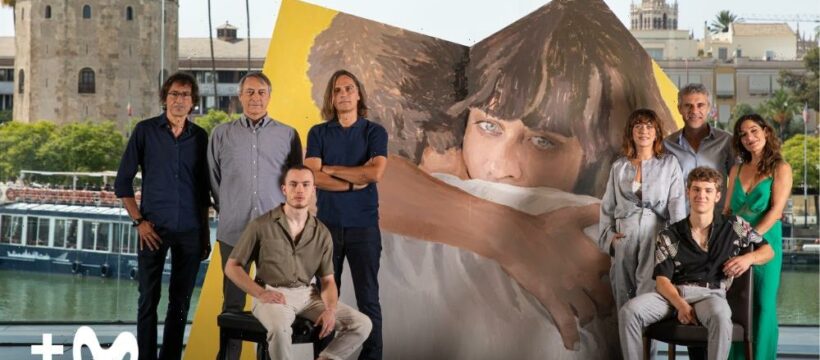Rafael Cobos, the co-screenwriter of Alberto Rodríguez’s Goya best picture winner “Marshland” and “The Plague,” one of Movistar Plus’ most ambitious series ever, is getting his own show.
Moving into production on July 18, “El hijo zurdo” stars María León, a stunning 2011 San Sebastian best actress winner for “The Sleeping Voice,” in a series which Cobos describes an “emotional thriller.”
Movistar Plus’ newly announced original is not only written by Cobos but co-directed too in the directorial debut of the Seville-based scribe.
A six part, half hour drama, “El Hijo Zurdo” is scheduled for release first half of 2023. Movistar Plus Internacional is handling worldwide distribution.
Cobos’ career-long relationship with Rodríguez takes in the Spanish director’s 2022 San Sebastian opening movie “Prison 77” and his episode in “Offworld,” a Movistar Plus anthology series which world premieres out of competition at San Sebastián.
Cobos has also co-written “The Unit,” Movistar Plus’ hit action-espionage series, and the films of “Doghead” director Santi Amodeo, most recently “The Gentiles,” a standout at last year’s Seville European Film Festival.
Some screenwriters steer clear of direction. Others dream of being able to get onto a screen the full nuances of characters which they have lived with for years. News of “El Hijo Zurdo” comes just two months after Movistar Plus unveiled “Fácil,” the series directorial debut of Anna R. Costa, co-scribe with Paco León of the Ava Gardner in Madrid focused “Arde Madrid,” one of Movistar Plus’ biggest hits ever.
Co-directed by Paco Baños, whose “Alí” won a best first feature prize at 2012’s Málaga Film Festival, “El Ñino Zurdo” is produced with Atípica Films, the Madrid-based company headed by José Antonio Félez and Cristina Sutherland which made “The Plague” with Movistar Plus and co-produces “Prison 77.” Félez’s relationship with Rodríguez dates back to his 2000 debut, “The Pilgrim Factor.”
“I will always say that there’s a sense of absolute complicity with Rafa, Alberto and José Antonio: After ‘The Plague,’ we owe them a continuation in Movistar Plus originals,” Domingo Corral, Movistar Plus’ director of original production, said at a presentation of “El Hijo Zurdo” which took place late last week in Seville.

Seville as a Singular Setting
The press conference unspooled against a spectacular backdrop taking in, just across a waterway, Seville’s iconic Torre de Oro and, little further away, the Giralda bell tower of Seville’s Cathedral.
“The Plague,” a conspiracy thriller, was set in Seville around 1580 as different factions fought for a city sluiced by vast wealth from the New World, and with it control of the destiny of Spain.
Based on the same-titled novel by Rosario Izquierdo, “El hijo zurdo” is takes place in a contemporary Seville, moving from its humble outer radius to its historic center. “This will make for a highly singular story,” Corral said.
Women as Mothers
In it, Lola, a well-heeled divorced mother of two, watches her teen son becoming ever more deeply involved in a local neo-Nazi gang. A mother at an early age, in an attempt to understand and recuperate her son, she strikes up friendship with Maru, from Seville’s humble outer suburbs, who faces a similar situation.
“This is the story of a woman, Lola who, because of being a mother, has retired from the social frontline. With time, she needs to renew her lost social identity through her love for her son. María Leon’s character is among the most complex that I’ve ever written and Maria will show the richness of her registers,” Cobos commented in Seville.
“My backgrounds is in thrillers, action titles. But when the chance came up to direct, I chose this project, which is nearer to my subjective self,” he noted.
That said, “‘The Plague’ and ‘El hijo zurdo’ have a lot in common in their ‘laboratory’ development,” Cobos added. “They share mechanisms, tools, though if ingredients ring true and there’s real emotion which you can work on, all the better,” Cobos added.
“With ‘The Plague,’ Rafa acted as a kind of showrunner, getting involved in not only the writing but the whole evolution of the series, and we talked about the possibility of a future project where he would write and also direct some episodes,” said Félez.
“We aim for this show to become a universal reflection on the role of women and women as mothers: What they become in a society where that role is very difficult,” he added.

Source: Read Full Article
